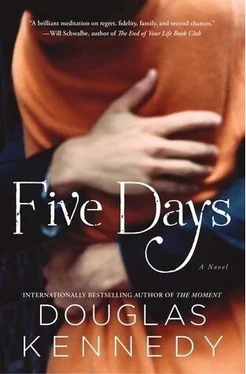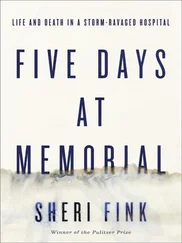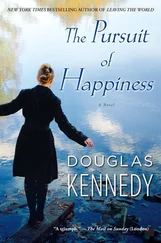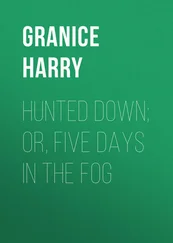Douglas Kennedy - Five Days
Здесь есть возможность читать онлайн «Douglas Kennedy - Five Days» весь текст электронной книги совершенно бесплатно (целиком полную версию без сокращений). В некоторых случаях можно слушать аудио, скачать через торрент в формате fb2 и присутствует краткое содержание. Жанр: Современная проза, на английском языке. Описание произведения, (предисловие) а так же отзывы посетителей доступны на портале библиотеки ЛибКат.
- Название:Five Days
- Автор:
- Жанр:
- Год:неизвестен
- ISBN:нет данных
- Рейтинг книги:3 / 5. Голосов: 1
-
Избранное:Добавить в избранное
- Отзывы:
-
Ваша оценка:
- 60
- 1
- 2
- 3
- 4
- 5
Five Days: краткое содержание, описание и аннотация
Предлагаем к чтению аннотацию, описание, краткое содержание или предисловие (зависит от того, что написал сам автор книги «Five Days»). Если вы не нашли необходимую информацию о книге — напишите в комментариях, мы постараемся отыскать её.
Five Days — читать онлайн бесплатно полную книгу (весь текст) целиком
Ниже представлен текст книги, разбитый по страницам. Система сохранения места последней прочитанной страницы, позволяет с удобством читать онлайн бесплатно книгу «Five Days», без необходимости каждый раз заново искать на чём Вы остановились. Поставьте закладку, и сможете в любой момент перейти на страницу, на которой закончили чтение.
Интервал:
Закладка:
The two guys singing this Kurt Cobain classic (well, I think it a classic) were both very much carrying on the grunge look that he pioneered. Neither of them could have been more than twenty, and despite appearing just a little strung out, their musicianship and vocal harmonies were just sublime. The area around this entrance to the Common was bustling. Tourists in guided groups. Locals on bicycles or jogging or pushing baby chairs. Couples everywhere. The newly in-love ones with their arms entwined around each other’s waists. A few teenagers kissing a little too passionately on park benches, and one duo courting arrest up against a tree. A few evident first-date types, all caution and nervousness. The new parents with their babies in strollers, all so sleep-deprived, the domestic strain so apparent. The middle-aged couples — some distant with each other, some affable. And an elderly man and woman, sitting on a bench at the entrance to the park, both reading sections of that morning’s Globe, holding hands.
Naturally I was envious of that couple, and wanted to know their story. Were they childhood sweethearts who had met sixty years ago and had been in love ever since (a very Reader’s Digest version of marriage)? Or had they gotten together much later in life, after being widowed, divorced, profoundly lonely? Was theirs one of those marriages that had gone through huge upheavals and periods of true disaffection, only to find an equilibrium as it edged into twilight? Had they stuck together out of fear, or resistance to seismic upheaval or the pursuit of something better. and now were two old people on a park bench, holding each other’s hand, resigned to the fact that life held no further possibilities beyond this other person, whom they should have jettisoned years ago?
Of course I so wanted to believe the first scenario — the devoted couple for over sixty years. Of course I knew that this was the stuff of fantasy — that no relationship of such calendric magnitude could have been one long love song from the outset. But how we so want to buy into that fairy tale and how we always wonder if conjugal happiness is just outside our reach.
I checked my watch: 1:18. I was now three minutes late — and Beacon Street was. where, exactly? I asked someone for directions. He pointed me towards the State House on a raised piece of land just above the Common, and told me to turn left when I reached it.
‘Beacon Street is the first big one you come to,’ he said. ‘You can’t miss it. And I’m sure whoever is waiting for you will wait for you.’
I couldn’t help but smile — but I was still late, and I really didn’t want to have Richard thinking: So she’s the sort of woman who plays games by keeping a guy waiting.
But would he really think that? And why was I thinking that?
I reached the Beacon Street Hotel at 1:27, twelve minutes late. The bistro was on the street level. It looked stylish, chic. Richard was already there, seated in a booth in a far corner. I could see he was dressed in his idea of casual: a blue button-down shirt, a zip-up navy blue jacket, khakis. I suddenly felt silly about my Parisian boho look. He was hunched over his BlackBerry, tapping out a message with ferocious concentration. From the expression on his face, he was clearly disconcerted by something.
‘I’m so sorry,’ I said as I reached the booth. Instantly Richard stood up, trying to put a smile on his face. ‘I misjudged the travel time and—’
‘No need to apologize,’ he said, motioning me to sit down. ‘In fact it’s me who should be apologizing. I might have to cut this lunch short.’
‘Oh,’ I said, trying to mask my disappointment. ‘Has something come up?’
I could see his lips tightening. He hit the off button on his BlackBerry and shoved it away from him, as if it was the harbinger of bad things.
‘Yeah, something kind of—’
But he cut himself off, forcing himself to look cheery.
‘Not worth ruining lunch over. I don’t know about you, but I could truly use a bloody mary.’
‘I wouldn’t say no to one.’
‘I wouldn’t say no to two.’
He motioned to the waiter — and put in the order for the drinks.
When the waiter was gone I could see that Richard had already reached for the napkin on the table and was twisting it between his hands — something I repeatedly did whenever I was feeling unsettled.
‘Something’s happened, hasn’t it?’ I asked.
‘Am I that obvious?’
‘You’re that distressed.’
‘Distressed, discomposed, disconcerted. ’
‘Vexed. And now I know you too are a walking thesaurus.’
A small, sad smile from Richard.
‘I’m sorry,’ he said. ‘I really didn’t want to even talk about. ’
I reached over and lightly touched his arm. It was a gesture that couldn’t have lasted for more than a moment. But from the way he took a deep intake of breath when my fingers landed on his jacket. well, I couldn’t help but wonder when anyone had last touched him in such a reassuring way.
‘Tell me, Richard.’
He lowered his gaze from me, staring down at the varnished wood tabletop between us. Then, without looking back up in my direction, he said:
‘I lied to you about something.’
‘OK,’ I said, trying to maintain a neutral tone, and stopping myself from feeling distressed, discomposed, disconcerted. After all, this was a man I had spent all of two and a half hours with before now. A passing acquaintance. Nothing more. So why was he admitting that he’d already fabricated something?
‘My son, Billy,’ he finally said, still keeping his gaze downward.
‘Has something happened to him?’
He nodded.
‘Something serious?’ I asked.
He nodded again. Then:
‘When I told you he was living at home I wasn’t telling you the truth. Billy’s been in the psychiatric wing of the state prison for just under two years. I just found out they’ve put him in solitary confinement because he tried to stab a fellow inmate last night. It’s the third time he’s been in solitary in the past eighteen months. And as the prison psychiatrist just told me: “I can’t see him being let out of solitary for the foreseeable future.”’
Silence. I placed my hand again on Richard’s arm.
‘I don’t know what to say except, that is truly terrible.’
‘That it is,’ he said. ‘The end of hope.’
‘Don’t say that. There’s always hope.’
Now he looked up at me directly.
‘Do you really believe that?’
It was my turn to look away.
‘No,’ I finally said.
Two
‘HE WAS DIAGNOSED as bipolar when he was nineteen.’
The bloody marys had just arrived. Though Richard had been, after the initial revelation, reluctant to say anything more about his son (‘I don’t want to bore you with my troubles’), I gently insisted that he tell me all. A sip of his drink. Another long, tense stare at the tabletop, during which I could see him weighing up whether he could spill this story. I squeezed his arm tighter. He covered my hand with his for a moment, then reached for his drink and (in doing so) pulled his arm gently away. A second long sip, and I could see the slightest of twitches as the vodka worked its way into his system. Then:
‘We knew, from an early age, that Billy was not a normal kid. Withdrawn. Always keeping to himself. Secretive — or, at least, that’s how I saw it. Then there were the moments when everything came right with him — when, out of nowhere, he would suddenly become hyper-animated and wildly outgoing. A little too outgoing, if you ask my opinion. But after the episodes of sullenness, of being so shut off, so solipsistic. ’
Lovely word, I thought. As if reading my thoughts, Richard raised his eyebrows for a moment after he uttered it. I smiled back. Richard continued on:
Читать дальшеИнтервал:
Закладка:
Похожие книги на «Five Days»
Представляем Вашему вниманию похожие книги на «Five Days» списком для выбора. Мы отобрали схожую по названию и смыслу литературу в надежде предоставить читателям больше вариантов отыскать новые, интересные, ещё непрочитанные произведения.
Обсуждение, отзывы о книге «Five Days» и просто собственные мнения читателей. Оставьте ваши комментарии, напишите, что Вы думаете о произведении, его смысле или главных героях. Укажите что конкретно понравилось, а что нет, и почему Вы так считаете.












